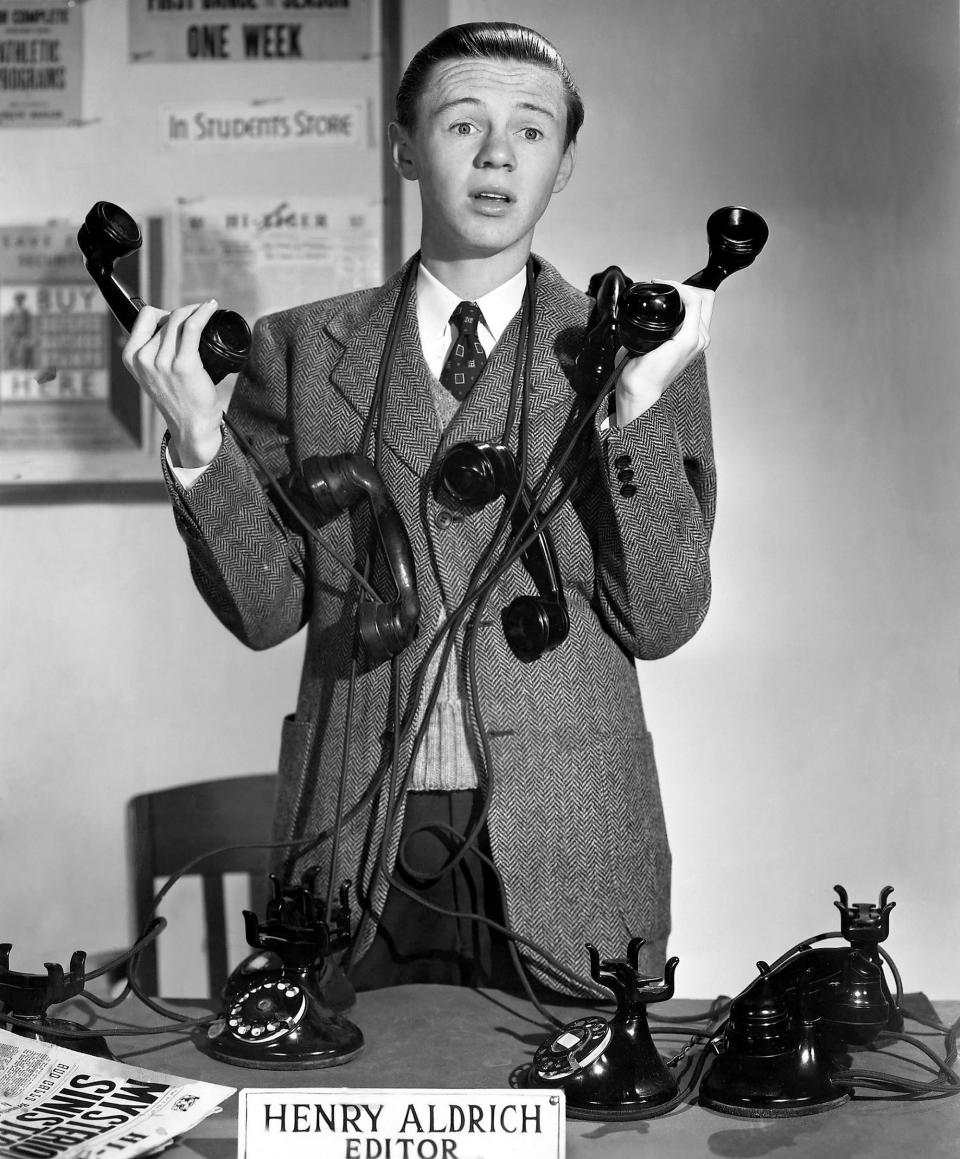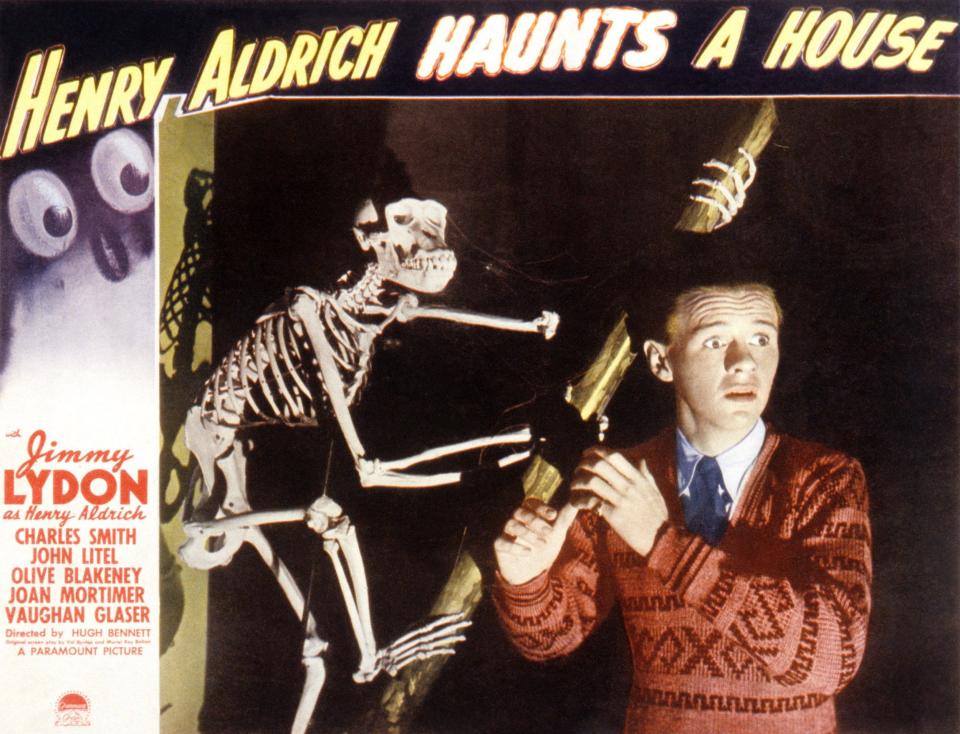Jimmy Lydon, teenage Hollywood actor of the 1940s who enjoyed a long career in mostly low-budget films and television drama – obituary

Jimmy Lydon, who has died aged 98, enjoyed an assortment of male juvenile lead roles during the late 1940s, and is remembered particularly for giving Elizabeth Taylor her first screen kiss, in the 1947 romantic comedy Cynthia. “I was the junior-flyweight king of the B-pictures,” he said.
James Lydon was born in Harrington Park, New Jersey, on May 30 1923, the fifth of nine children, and was brought up in nearby Bergenfield. It was a difficult childhood, thanks to his domineering and alcoholic father, who in 1932 gave up his job, forcing the rest of the family to find work.
“Hollywood is a tough gig,” he said in 2010. “It’s particularly hard on children – I had to grow up fast. I wouldn’t recommend parents to push their youngsters that way.”
Young Jimmy made his way as a jobbing actor and bluffed his way on to Broadway in Western Waters (1937-38), set on a boat travelling down the Ohio River. He invented a string of other “successes”, and the producer Elsa Moses was hoodwinked into hiring him for one production. “My father lied daily,” Lydon later said. “I learnt from the pro.” The play, however, closed after one week.
Undaunted, he followed that with small roles in another short-lived Broadway show, Sunup to Sundown (in which his brother Ormond Lydon and the future film director Sidney Lumet, 13, also had bit parts), as well as the plays Prologue to Glory and The Happiest Days.

Moving out West, Lydon took a few minor parts in films before playing the young lead in Tom Brown’s School Days (1940), which featured acting royalty in Sir Cedric Hardwicke as Rugby School’s reforming headmaster Thomas Arnold. The reviews were good – especially for Hardwicke – though Lydon, according to one critic, was “believable and moving in the early portions, but too young for the final moments”.
He then took over from Jackie Cooper as the lead in nine instalments of the “Henry Aldrich” film series (1941-44), a screen spin-off from the radio sitcom The Aldrich Family about a mischievous teenager (played by Lydon) and his family.

He combined these with supporting roles in Cadets on Parade and My Best Gal in 1942 and, in 1944, the morale-boosting short The Road to Victory, featuring Cary Grant, Bing Crosby and Frank Sinatra.
Signing with Republic in 1944, the following year Lydon had his first adult lead role in the low-cost noir thriller Strange Illusion and supported the identical Wilde twins, Lee and Lyn, in the comedy Twice Blessed.
In the immediate post-war years he played a Yale-bound student in Life with Father – enjoying another screen romance with Elizabeth Taylor – then appeared in The Time of Your Life with James Cagney and, in 1953, Island in the Sky with John Wayne. In 1949 and 1950 he and Janet Waldo voiced the lead characters in the radio adaptation of the comic strip Young Love.
Lydon also served on the board of the Screen Actors Guild in the 1940s and was instrumental in creating a pension scheme for actors.
He made a smooth transition to the small screen, appearing as a newlywed in the first CBS soap opera The First Hundred Years (1951-52) – performed live – and he appeared in prime-time series such as Maverick, Colt .45, The Twilight Zone, The Untouchables, Dr Kildare, Wagon Train, Space Ranger – and 77 Sunset Strip, on which he was also an associate producer.

He undertook production duties on several other series, as well as directing a 1977 episode of The Six Million Dollar Man. He continued to have guest spots throughout the 1970s and 1980s, his final acting credit coming in the hospital drama series St Elsewhere in 1987.
Jimmy Lydon married, first, Patricia Pernetti in 1945. They were soon divorced, and in 1952 he married Betty Lou Nedell. She predeceased him by two months, and he is survived by their two daughters.
Jimmy Lydon, born May 30 1923, died March 9 2022

 Yahoo News
Yahoo News 
